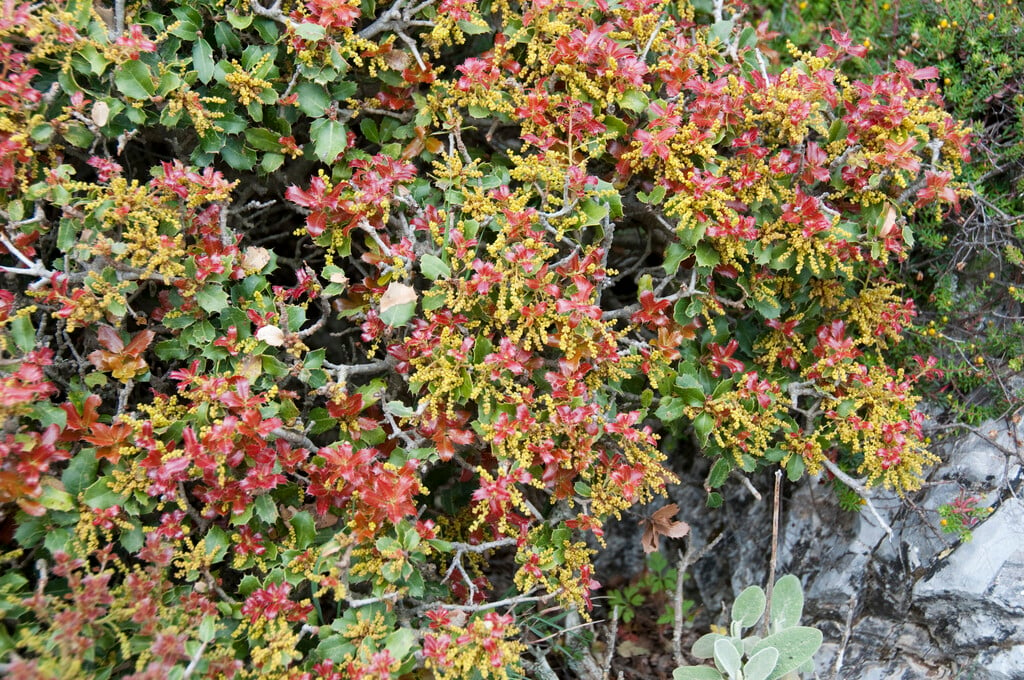Quercus coccifera
Kermes oak
A very slow-growing, dense, bushy, evergreen shrub to 5m tall and wide or rarely a small tree with smooth grey bark that cracks with age. Glossy, dark green holly-like leaves with spiny margins are 3-5cm long. Insignificant yellow-green spring flowers may be followed by solitary, spherical to ovoid acorns carried in spiny cups
Size
Ultimate height
4–8 metresTime to ultimate height
more than 50 yearsUltimate spread
4–8 metresGrowing conditions
Moisture
Moist but well–drained, Well–drainedpH
Acid, Alkaline, NeutralColour & scent
| Stem | Flower | Foliage | Fruit | |
| Spring | Green Yellow | Green | ||
|---|---|---|---|---|
| Summer | Green | |||
| Autumn | Green | Brown | ||
| Winter | Green |
Position
- Full sun
Aspect
East–facing or South–facing or West–facing
Exposure
Exposed or ShelteredDrought resistance
Yes Hardiness
H5Botanical details
- Family
- Fagaceae
- Native to GB / Ireland
- No
- Foliage
- Evergreen
- Habit
- Bushy
- Potentially harmful
- Pets (dogs): Harmful if eaten - for further information and contact numbers regarding pets, see the HTA guide to potentially harmful plants
- Genus
Quercus can be deciduous or evergreen trees or shrubs, with entire, lobed or toothed leaves; flowers inconspicuous, followed by characteristic acorns; sometimes good autumn colour
- Name status
Correct
- Plant range
- E Mediterranean, SW Asia
How to grow
Cultivation
Grow in well-drained soil in full sun; tolerates dry soils and drought conditions. See tree cultivation for further advice
Propagation
Propagate by sowing seed soon after it drops or by semi-ripe cuttings in late summer
Suggested planting locations and garden types
- Coastal
- Mediterranean climate plants
- Low Maintenance
- Banks and slopes
- Hedging and screens
Pruning
Pests
May be susceptible to oak processionary moth, aphids, caterpillars, leaf-mining moths and oak gall wasps
Diseases
May be susceptible to powdery mildews and honey fungus
Get involved
The Royal Horticultural Society is the UK’s leading gardening charity. We aim to enrich everyone’s life through plants, and make the UK a greener and more beautiful place.
